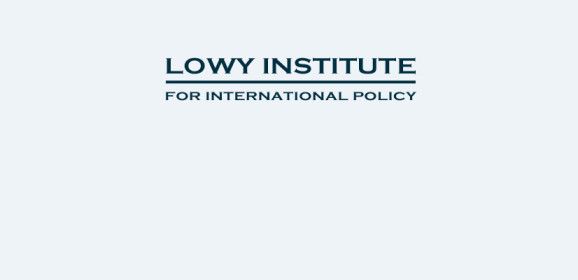Section: Lowy Institute for International Policy (Australia)
How well did the IMF handle the 2010 Greek crisis?
‘IMF admits disastrous love affair with the euro led to immolation of Greece’. So runs a press headline about the IMF Independent Evaluation Office (IEO)’s new report on the 2010 Greek crisis. It was already widely accepted that the IMF’s handling of the crisis was badly flawed, so the IEO’s report was more about...
Trump, Putin and information warfare
The recent DNC hack, which led to the leaking of emails purporting to show favouritism towards Hillary Clinton over Bernie Sanders, is another example of the arms race moving into cyberspace. It has also sparked a frenzied hunt for the perpetrator, with Russia the most logical candidate. Undermining Clinton’s bid for the White House — or so...
Poker, chess and Go: How the US should respond in the South China Sea
The Permanent Court of Arbitration’s decision places more pressure on the US than China, as Washington must now act to support this emphatic judgement. Failure to do so will further weaken America’s credibility, and undermine the rules-based order it seeks to preserve. In order to determine how the US may effectively respond,...
After Warsaw: NATO, Russia and the Future of Security in Europe
There was a time when it was legitimate to wonder what NATO’s future role would be. Not anymore. If anything, the Atlantic Alliance is facing too many missions. Russia and terrorism are not the only problems: there is unfinished business in the Balkans, in Iraq and Afghanistan, as well as the migration challenge. NATO Heads of state and...
What a Trumpist Republican party will mean for the US in Asia
The US Republican Party will gather from July 18–21 to formally nominate Donald Trump as its presidential candidate. This may be contested — the ‘Never Trump’ movement is searching for a way to open the convention — but regardless, Trump has already altered the Grand Old Party (GOP) dramatically. He will likely lose in November. But...
What does Putin want?
It’s a tough question, with various layers, and might make Putin himself pause. Here’s an attempt at an answer. Putin wants to win; he wants victory. So how he would he define victory? First, he must be able to rule securely till 2024, as a constitutional amendment he enacted allows. Securing that outcome means ensuring that key...
Where the new government should concentrate its efforts beyond our shores
The Australian government and opposition have largely focused on domestic issues in the election campaign. This emphasis is understandable, but in the longer term the government elected on this weekend will need to address the greatly changed world of 2016. Both Foreign Minister Julie Bishop and Shadow Foreign Minister Tanya Plibersek have...
Brexit is England’s silliest decision since Suez
It’s now over 70 years since British Prime Minister Winston Churchill told his Australian counterpart John Curtin of his wish to see a united western Europe, of which Britain would be a member. The allies had fought their way up the southern Italian peninsula but the Normandy landing was still a month away, Hitler still controlled Europe...
The war of the cold words: Russia, the West and propaganda
Superficially, Russian Culture Minister Vladimir Medinsky’s recent claim that Netflix was a CIA plot resembles another excitable pronouncement from a Kremlin hierarchy increasingly out of touch with reality. The same goes for the regularly inflammatory comments of Dmitry Rogozin, the possible successor to Vladimir Putin, who famously warned...
Brexit would be good for the UK and good for Europe
By Brett Hogan, Senior Fellow, and John Roskam, Executive Director, Institute of Public Affairs. This week’s referendum on whether the UK remains with, or leaves, the EU is primarily about democracy and the right of a sovereign people to live under their own laws. A vote to leave would be a positive outcome for the UK, but would also send...



